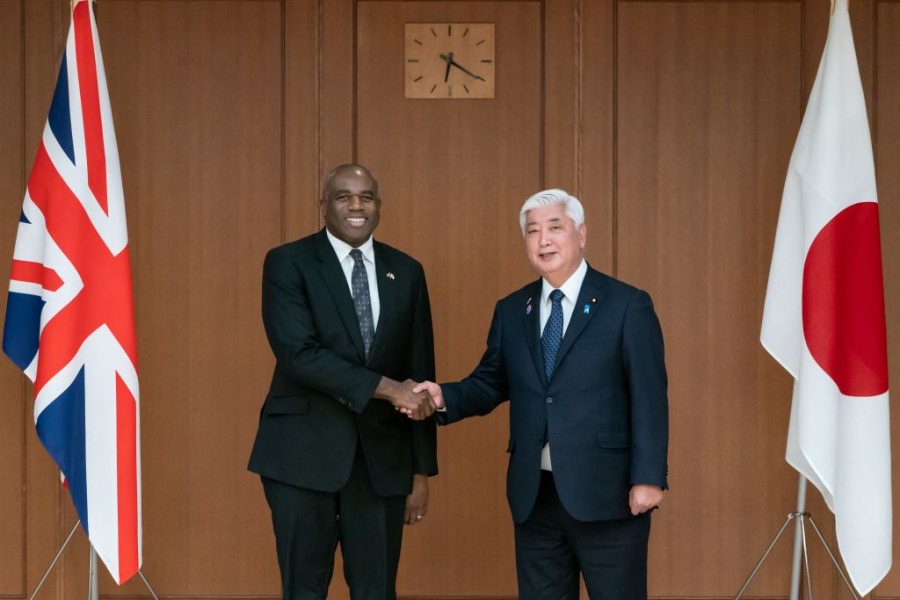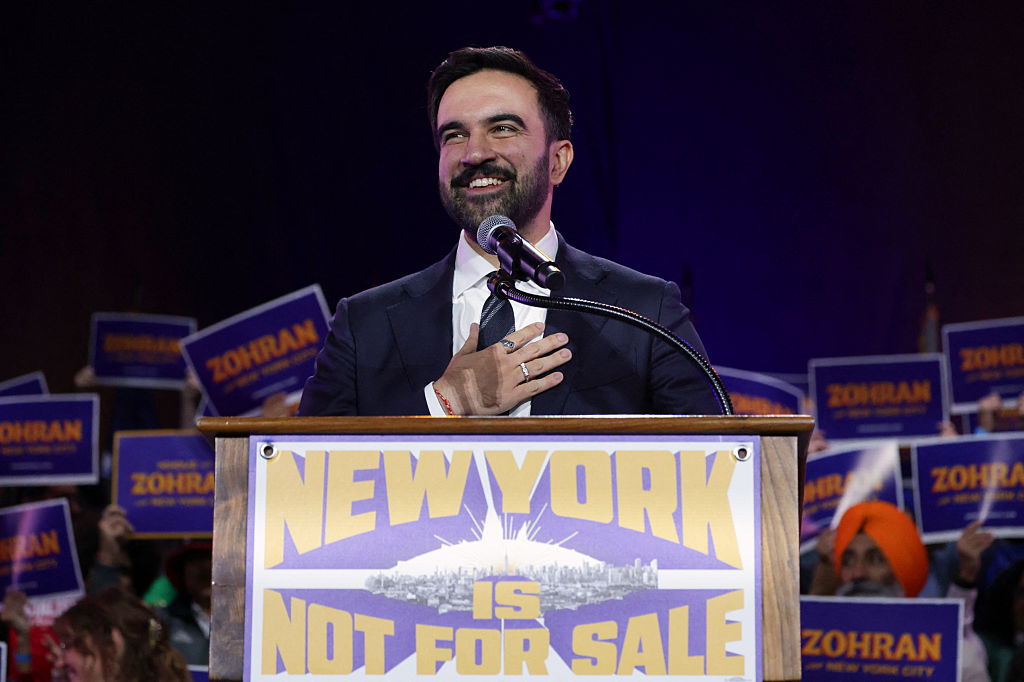Foreign Secretary David Lammy and Business Secretary Jonathon Reynolds are in Tokyo for ‘2+2’ (two ministers for the price of one) talks with their Japanese counterparts. The sessions are expected to be at least superficially productive, with hopeful talk of enhanced cooperation on security and strengthened economic ties (particularly on AI). Apparently, details of a new trade and defence deal, including plans to develop a new industrial strategy partnership between the 4th and 6th biggest economies in the world, will be announced, along with some hot air about an offshore wind project.
There is something faintly desperate in the idea that the UK can be of much help to Japan
The Foreign and Business Secretaries will probably enjoy themselves. A trip to Japan is always a good boondoggle. You are sure of a warm welcome and a smoothly conducted itinerary. Press conferences do not descend into bickering and the coverage is tightly controlled. All serious issues will have been decided well in advance, so unless you commit a terrible faux pas such as resting your chopsticks in your rice, you can’t really go wrong. The timing is especially good for Lammy and Reynolds (the trip was scheduled in November) with the former under constant scrutiny over the Chagos deal and the latter over his dubious legal credentials – along with the ever-present concerns over the economy.
These are not typical times, though, and it is not clear if the two sides truly understand each other. Lammy and Reynolds will not be dealing with a normal Japanese administration. Prime Minister Shigeru Ishiba of the LDP (Liberal Democratic party) heads a minority government reliant on opposition votes to pass Bills – highly unusual for Japan. He faces Upper House elections in July but could be forced into another general election by no-confidence votes. His position here in Tokyo is viewed as close to unsustainable: Lammy and Reynolds may not be talking to the decision-makers of even the near future.
On the plus side, for the Japanese, the relationship with the UK still has great importance and some see it as the ‘special relationship’ that might have been. The hopeful mood of reviving the spirit of the 1902-1923 Anglo-Japanese Treaty of Alliance at the time of the free trade agreement signed by then trade secretary Liz Truss in September 2020 still pervades. Business links remain substantial (Japanese companies employ 160,000 in the UK) and personal relations are warm – the current Japanese Ambassador to the UK, Hiroshi Suzuki, has made quite a name for himself for his passionate Anglophilia.
But it is not clear if the Japanese truly appreciate the economic weakness of the British economy or the UK’s strategic insignificance. The hype surrounding the joint fighter jet ‘Tempest’ project (not expected until 2035) and the grand talk of prospective AI cooperation conquering all seems somewhat overblown. A glimpse of the way the Japanese have an out-of-date view of the UK was a recent feature on mainstream TV about the exodus of high-net-worth individuals from European countries. The presenters were astonished that the UK topped the list of billionaire’s fleeing what they seemed to assume was something akin to paradise. Just wait until they get round to covering energy prices.
Whatever the business agenda for the 2+2 talks, the main topic of conversation is likely to be security and the spectre at the feast will be the new-ish US President. Donald Trump’s return has caused genuine panic in Japan over the reliability of the US/Japan security alliance. The threat of a Chinese move on Taiwan, perhaps somehow facilitated by the conflict in Ukraine, looms large in the nightmares of Japanese policy makers. The Japanese were not especially reassured by the words of Eldridge Colby (Trump’s nominee for undersecretary of defence for policy) who stated that ‘Taiwan was very important but not an existential interest to the US’.
The British diplomat and Asia expert Charles Parton described the mood in Japan over the Taiwan issue as ‘petrified’ and concluded that in this atmosphere ‘reliable allies like the UK’ are ‘more important than ever’. Japan is looking to strengthen its own military capabilities but that’s not easy in a country with a pacifist constitution, a huge government debt (equivalent to £6.9 trillion), and a weak government. The government may see the UK as a potentially significant military partner – or at least useful in influencing the US to maintain its commitment.
But there is something faintly desperate in the idea that the UK can be of much help. There is a feeling in this meeting of two marginal powers who haven’t quite come to terms with their diminished status in the world. The truth is, there isn’t much that Lammy can offer the anxious Japanese apart from warm words and bland assurances, and the Japanese can’t save the UK economy.
The optics of this trip will be good though, the hosts will make sure of that. As is the Japanese way, the communique will have been written long ago and it will sound splendid. But it is doubtful whether Donald Trump or the markets will take much notice of it.







Comments